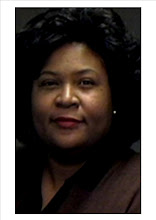.jpg)
Summertime means more time together as a family, which is not always a good thing if one or more of the family members are not getting along.
Sometimes all that is needed is for someone to say, “Hey, I’m sorry about the other day. Are we okay now?” But if the hurt was a deep one, it requires more than a superficial effort to heal the wound.
One family conciliation format that has been successful is to have the two persons in the wounded relationship come together with two or three of their trusted friends, and to allow the two family members to present to the other how that person has offended them.
The purpose for the presence of the two or three friends is for them to help be a quieting influence, a prayer presence, a light into the truth when denial is persistent, a reminder that this process should be about love not condemnation, and an encouragement to go forward when an impasse seems to have been reached.
Set aside three to four uninterrupted hours for this process -- no phones, no visitors, no snack breaks, no chit-chat, no small children needing attention – just intense, uninterrupted emotional and spiritual work.
Take it one family member and one offense at a time. Do NOT have the offended family member voice a long litany of a record of wrongs. There may indeed be many offenses, and you do need to get to them all in that one uninterrupted session, but take them one at a time.
Have the two family members take turns expressing the offenses and seeking conciliation on that topic. One person will usually be more at fault than the other, but it is rare that there is not offense on both sides. Keep in mind that unforgiveness and self-righteousness are also sins.
Starting with the most wounded person, have them clearly express one thing that has offended them. The offending family member then restates the offense so that the offended family member is sure they have been understood.
The offending family member then clearly confesses that problem and states their repentance of it.
Repentance is quite different and much deeper than mere regret or remorse.
In repentance the offending person states that they are sickened by the thought that they had ever done the offense, and are sickened by the thought that they might ever do the offense again. The offending person then requests forgiveness from the other person.
If the person offended does not think the confession completely addressed their offense, or if they are not yet capable of giving forgiveness, that ground is gone over again until both the burdens of sin and the burdens of unforgiveness are fully released.
Sometimes an offended person cannot yet give forgiveness because they have not heard repentance phrased in a way that is believable to them. Sometimes the offending person does not know they are evading full responsibility when in fact they are. In these cases, having the offending person speak through the five elements of apology used by Dr. Gary Chapman can be very helpful:
1. “I am sorry that I…”
2. “I was wrong when I…”
3. “What can I do to make it right?”
4. “I’ll not do that again”
5. “Will you please forgive me?”
To complete each stage of the session, the offending person would talk to God, in open prayer, about the offense they had done.
When the process is finished, both family members should be at peace with one another and committed to making their relationship honorable for God and for the other family member.



